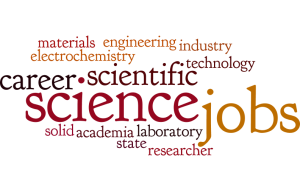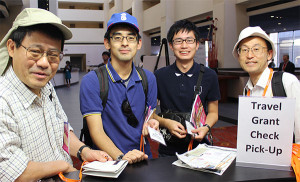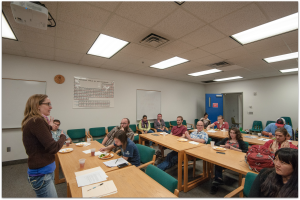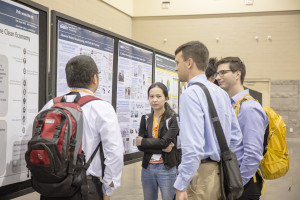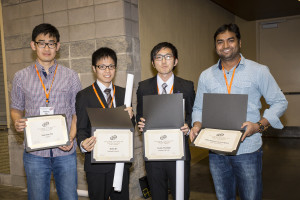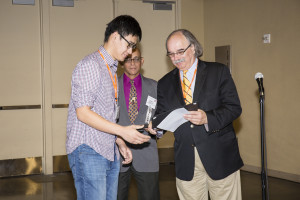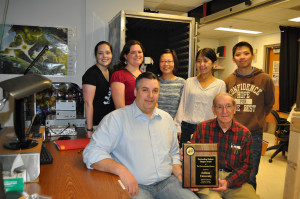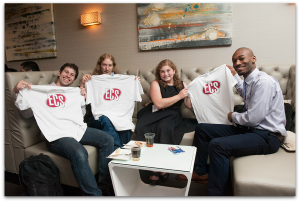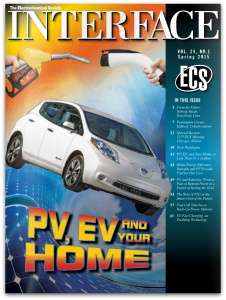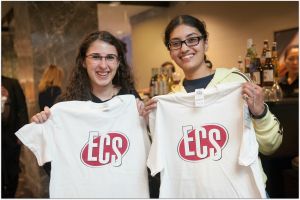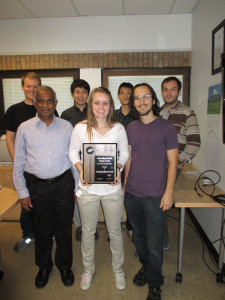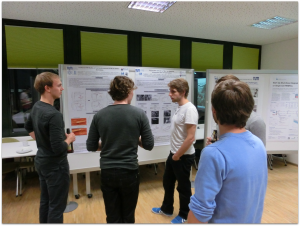
Discussion during poster session. From left to right: Maximilian Bernt, Lukas Seidl, Thomas Mittermeier, Ludwig Asen, Benedikt Brandes (hidden).
Networking and knowledge exchange are at the heart of the newly established Munich student chapter.
“We wanted to establish an easy way to find people you could talk to when you encounter problems, want to vent your ideas about your experiments, or get some help,” says Thomas Mittermeier, chair of the student chapter and PhD student at Technische Universität München.
The student chapter, which pulls students from multiple universities across Munich, is working to assist in connecting themes and ideas happening in electrochemical research across the city. For Mittermeier and the rest of the students, it provides an avenue to transfer knowledge and bring more depth to research with ease.
“Since we’re from different individual research groups that all relate in some way to electrochemistry, the initial idea to start a student chapter was sparked from that,” Mittermeier says.
Establishing the Chapter
From ideas to research tools, the Munich student chapter is using an organized flow between universities and research groups to make research easier, producing better results. While the idea for this collaboration was sparked from the diversity and depth in research happening in Munich, the ideal platform was not always as apparent.
As a student member, Mittermeier regularly received ECS’s student newsletter. After seeing a list ranking universities by their number of student members, Mittermeier thought it was strange that his own university— Technische Universität München—was so high on the list but did not have a student chapter. With this, the ball started rolling for what would be the Munich student chapter.


